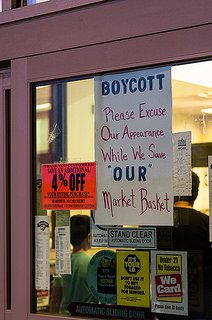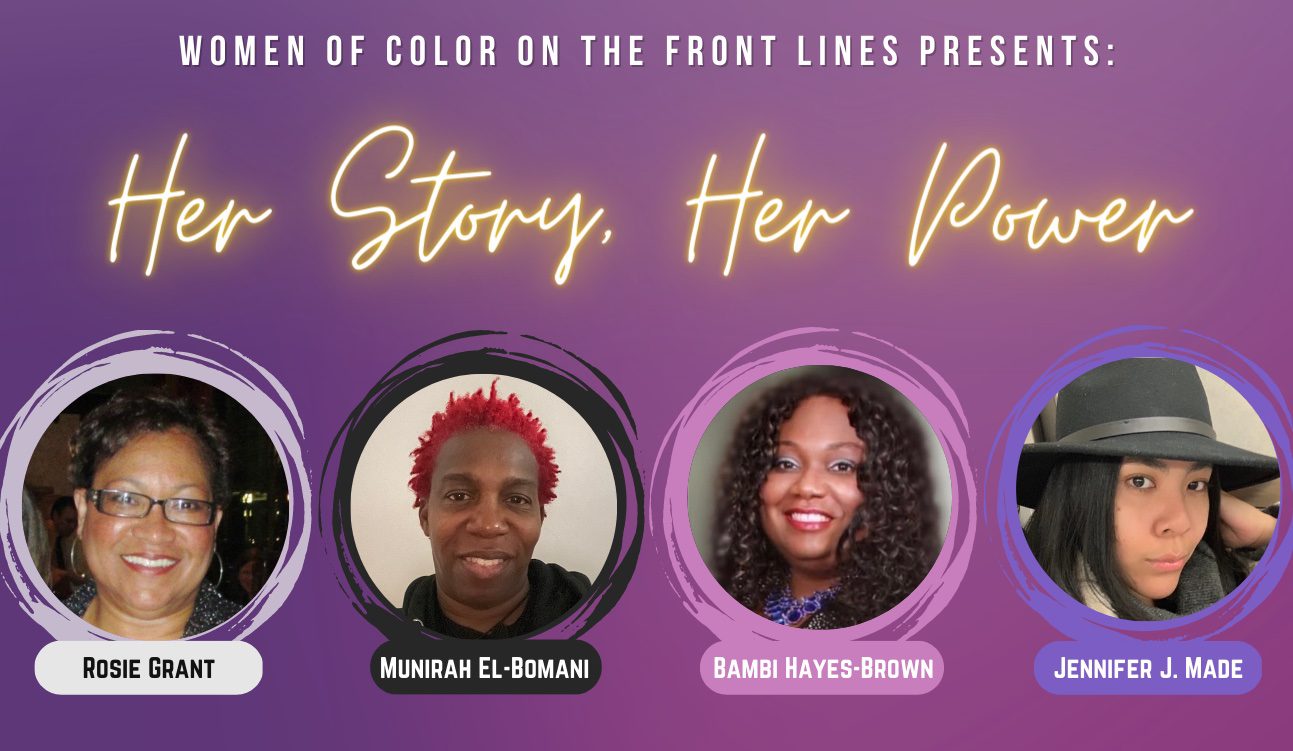
Community developers have long recognized that constituents are a source of power, and recent events raise strategic questions. The answer can remind us how to harness that power:
How can community members demonstrate that their votes, wallets, and collective efforts matter?
Demonstrating Constituents’ Power: Boycotters not only refused to fill their shopping carts at Market Basket and took their suitcases to other hotels; they made their power visible. Local clergy, their congregants, and other activists picketed in front of the three Hyatt hotels that fired the workers. Their arrests heightened public awareness of the issue. Customers compelled to buy their groceries at competitors taped their receipts to Market Basket’s storefront windows.
Which powerbrokers can be enlisted to call attention to community issues and influence decision-makers?
Enlisting Powerbrokers: Both labor protests attracted local powerbrokers. Massachusetts and New Hampshire governors urged the Market Basket’s board to reach a resolution because 25,000 jobs in the 71 stores in their states were on the line, along with affordable groceries for millions of residents. Massachusetts’ governor threatened to prevent state workers from booking Hyatt properties for official business. Local 26 Unite Here, the union that represents hospitality workers, lent organizing expertise and helped orchestrate protests. The New England Jewish Labor Committee, the faculty of Emerson College, and the Boston Taxi Drivers Association backed the Hyatt boycott, and Massachusetts Jobs With Justice voted Hyatt the “Massachusetts Scrooge of the Year.”
How can drawing attention to common interests among unlikely allies widen support and expand influence for community initiatives?
Connecting Unlikely Allies: The Market Basket protests brought together management and line staff in rare recognition of shared stakes along the corporate hierarchy. Store managers and warehouse supervisors earn considerably more than shelf-stockers and cashiers, yet according to media reports, all are paid considerably more than their counterparts in the industry, especially when annual bonuses are factored in. Moreover, all receive only a tiny fraction of the store revenues.
How can personal stories convey the shared values underlying community initiatives to broader audiences?
Societal Values and Personal Stories: Market Basket protestors held signs reading, “Don’t Feed the Greed.” Demonstrators supporting the fired housekeepers emphasized moral obligations to treat workers fairly and with respect. Personal stories expressed these values. Accounts of how Market Basket’s ousted CEO supported employees financially through family health crises were broadcasted over social media and news reports. The fired housekeepers recounted their experiences of losing their jobs after decades of hard work at community gatherings and press conferences.
How can acknowledging residents’ experience in their community prevent displacement and inform new initiatives?
Honoring Hands-On Knowledge: Employees’ years of experience on the job was also part of the message. Market Basket managers warned that long-time employees have vital knowledge that would be lost if they were replaced. Hyatt recognized workers’ knowledge when they required the housekeepers to train their lower-wage replacements before they were fired.
How can statewide and national federations of community based organizations strengthen the community development field?
Institutional Infrastructure: Time will tell whether gains from these protests will extend into the future. Market Basket employees got their CEO back, but we don’t yet know how his personal commitments will hold up under financial pressures or how his legacy will influence subsequent generations of owners. The decline of loyalty-based, family-owned businesses also portends that replication of this type of protest is unlikely. In contrast, the Unite Here’s ongoing organizing is already extending the protests among hotel workers across the country. Institutions with economic, political, and logistical resources and years of experience clearly add to the power of shopping carts and suitcases, powerbrokers and unlikely allies, and personal stories with wide appeal.






Comments